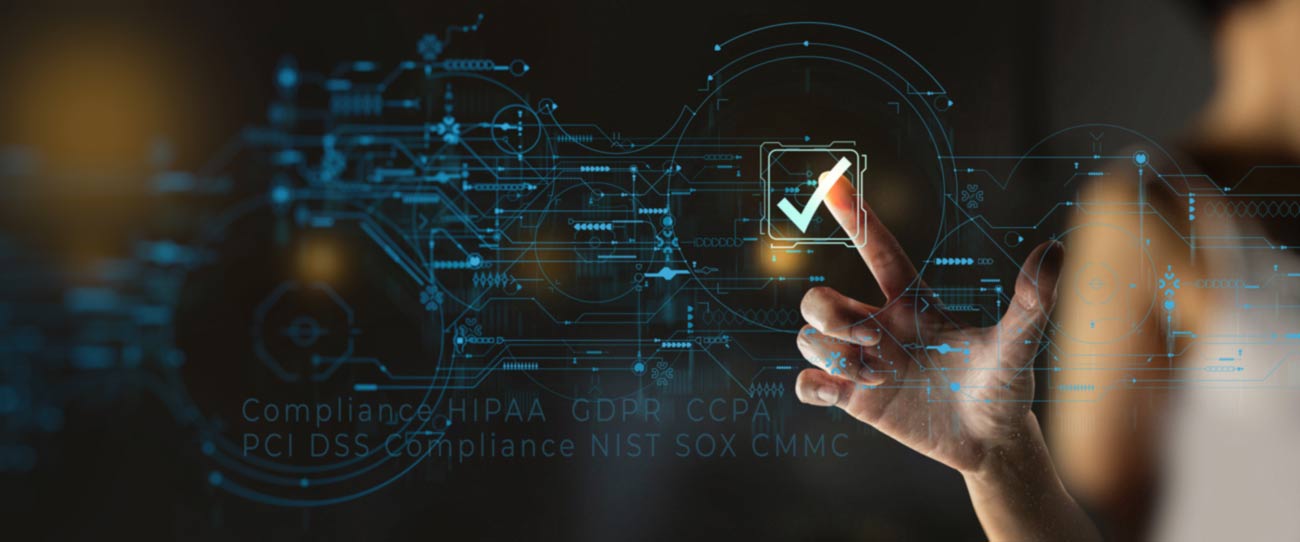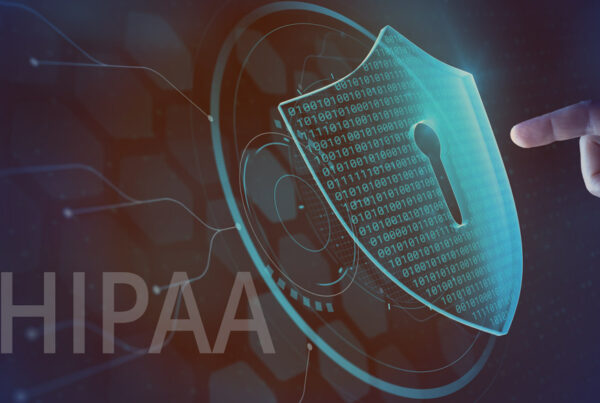The Cost of Compliance
Small business owners spend at least 20 hours every month and about $12,000 yearly on direct and indirect compliance activities such as audits, workplace upgrades, process changes, and attorney fees.
Unlike larger businesses, many SMB owners lack the luxury of a large budget and a dedicated compliance team, thus forcing them to take on the additional responsibility of keeping their businesses compliant. Learning and keeping up with constantly-changing federal, state, and local regulations takes business leaders away from their core business. And, evolving regulations can be a significant point of frustration and fear for many SMBs.
SMB owners can reduce the complexities, costs, and risks associated with compliance by taking advantage of IT outsourcing services from a quality managed service provider.
But, first things first.
What is Compliance and Why is it Important
Compliance for SMBs is the process or state of operating per existing laws, policies, and regulations. These laws, policies, or regulations include government legislation (federal, state, and local) and industry-specific regulations.
Effective compliance begins with understanding the compliance requirements for your industry per location. Here are some common compliance frameworks that may apply to your business:
GDPR
The GDPR (General Data Protection Regulation) is a European Union regulation in place to protect the privacy and data of European citizens. GDPR applies to companies in or outside the EU that collect, store or interact with personal information.
CCPA
Businesses operating in the U.S. must be aware of the California Consumer Privacy Act. This act gives California consumers far-reaching data privacy rights. These consumers have control over their personal information. Among these rights are the right to delete, know, and opt out of selling any personal information a business collects.
PCI DSS
This regulation applies to your business if you accept payment via credit cards. The Payment Card Industry Data Security Standard (PCI DSS) was introduced in 2004 to protect cardholder data.
NIST (National Institute of Standards and Technology)
The NIST Cybersecurity Framework is a set of cybersecurity best practices designed to help businesses keep their systems and data secure. While not an enforced regulation, this is an excellent framework to follow to help your business protect itself from cybersecurity attacks.
HIPAA
The Health Insurance Portability and Accountability Act (HIPAA) was introduced in 1996 as a standard for handling healthcare data. This regulation applies to medical facilities and other businesses that deal with health data. HIPAA requires companies dealing with sensitive health data to protect it from unauthorized access, including cybersecurity threats.
SOX
The Sarbanes-Oxley Act (SOX) was introduced in 2002 to deal with corporate fraud. SOX regulates the accounting processes to protect consumers from corporate fraud and accounting errors.
OSHA
OSHA, or the Occupational Safety and Health Administration, is a regulatory framework designed to enforce safe working conditions for employees. Some of the OSHA regulations that apply to SMBs include:
- Keeping the workplace free from known hazards
- Provide employees with the information and resources to protect themselves
- Record keeping for work-related severe injuries or illnesses
- Reporting all serious work-related illnesses or injuries
These are just a few regulations that may apply to your business. Being compliant helps your company avoid unnecessary fines, penalties, and shutdowns.
As a small business owner already dealing with other business-related tasks, hiring a managed service provider is one of the best ways to remain compliant.
Ways an MSP helps SMBs navigate the costs and complexities of compliance
Deep Industry Knowledge and Resources
Your strength as a small business owner lies in effectively managing your business operations. This strength includes working with the right partners and potentially outsourcing IT services to a managed service provider when appropriate.
The right MSP will have an industry-deep knowledge of compliance requirements in your industry. MSPs are regularly learning and keeping up with emerging compliance standards to help SMBs stay on implement and maintain compliance.
In addition to deep industry knowledge in compliance, managed IT service providers have robust cybersecurity, analytics, and reporting tools to help clients with their compliance needs.
Developing a Compliance Program
Any business that wants to remain compliant must have a plan in place. Managed IT service providers can help design a compliance program that includes assessments and reporting on standards, policies, and procedures to help SMBs get compliant – and remain compliant.
While creating a compliance program, a managed IT service provider will incorporate all the regulatory requirements for all business functions.
The MSP then develops an assessment and monitoring program. The goal is to provide a benchmark for regularly evaluating the compliance program’s effectiveness and reducing risk exposure.
If your business already has a compliance program in place, the managed IT service provider will conduct a compliance audit to determine your program’s current strengths and gaps. The MSP then develops a system that fully meets your compliance needs.
Regular Monitoring
The regulatory landscape is ever-changing. This dynamic landscape increases the risks of non-compliance for businesses that are not alert.
When using a managed service provider with expertise in compliance, your MSP constantly monitors your industry and business environment to ensure that your business complies with government and industry regulations.
Developing Data Protection and Cybersecurity Systems
Regulations such as GDPR and CCPA focus on protecting customer data. This sensitive area requires small businesses to set up systems that help them act on customer requests, such as “Do not Sell My Information.”
Many cyber attacks originate with spam emails and phishing attempts that result in data breaches and loss of personal information. Managed service providers with cybersecurity expertise enable small businesses to establish cybersecurity and data protection systems that ensure proper storage, handling, and data sharing.
You also get the added benefit of a security assessment and advanced 24/7 monitoring to alert and prevent potential attacks.
Managed IT services partners provide additional data services to help you keep your data safe. These services include regular back-ups to prevent critical data loss in natural disasters, system failures, or hacking attacks.
They also provide cloud storage support services which include:
- Help to choose the best cloud storage set-up
- Cloud security
- Periodic risk assessment
- Data backup and recovery
Education, Training, and Support
Managed IT service providers work with businesses to train them in different ways to ensure they maintain compliance with various regulatory standards. MSPs will oversee training to ensure that employees and other stakeholders understand and adhere to the compliance program.
MSPs can offer different suggestions to help businesses meet the industry’s compliance requirements, including hardware, software, or process improvements.
Final word on Compliance
Compliance is critical for your business continuity and success. GlacisTech works with small and medium-sized businesses in Dallas, Texas, by offering expert managed IT services, cybersecurity, and compliance management to allow SMBs to focus on growing their businesses.
Ready to put compliance challenges in your rear-view mirror? Contact us today for a complimentary compliance assessment.
About GlacisTech
GlacisTech is a managed service provider (MSP) and managed security solution provider (MSSP) for small to medium-size businesses in the Dallas and North Texas region. GlacisTech helps businesses grow by providing innovative, state-of-the-art IT solutions that allow its customers to reduce network downtime, increase operational efficiencies, and cost-effectively scale their IT to meet the demands of their growing businesses.
GlacisTech’s suite of Worry-Free IT services includes managed IT, cybersecurity, virtual CIO, managed compliance & remediation, and cloud services.
Glacis Technologies, Inc
1130 East Arapaho, Suite 184
Richardson, TX 75081
24/7 Customer Support 469-522-2022
ITsupport@GlacisTech.com






